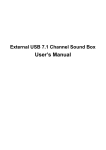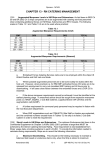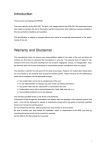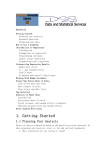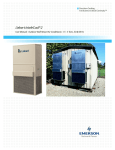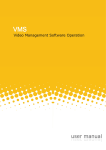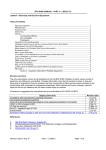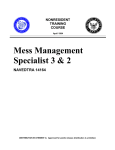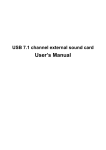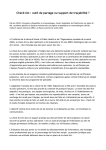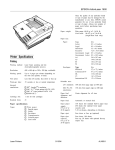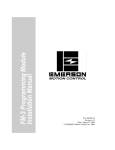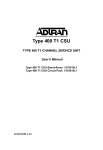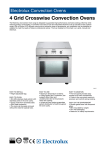Download Royal Navy catering accounting procedures
Transcript
Sponsor - NCHQ CHAPTER 18 - RN CATERING ACCOUNTING PROCEDURES GENERAL These regulations are specific accounting procedures for the Royal Navy. RN MESSING SYSTEMS 1801. General Messing. The normal messing system in sea-going and land based units is known as General Messing. Under this system, the Logistics Officer or Commanding Officer where no LO is borne, is responsible for the messing of the Ship’s Company in accordance with the approved standard within the monetary allowances. When provisions are issued for consumption, their value at PFM price or cost price is charged against the total DMR, Casual Meals and Supplements accrued for the same period. Thereby, a balance can be calculated between income and expenditure. Catering balances are carried forward at the end of the each period until the end of the financial year, when credits and debits are dealt in accordance with the guidance at 1820. Within the General Messing system there are two main methods of feeding, depending on the design of dining facility. 1802. Centralised General Messing. Under this system central dining halls are provided and personnel collect their meals individually from the servery. This is the standard method of messing in all sea-going units and land based units with the necessary space and facilities. Officers adopting to be messed under the General Messing system would eat in the Wardroom and receive front of house service. 1803. Modified Centralised Messing. In certain small ships and submarines where no dining areas can be provided, personnel collect their meals from the servery and take them back to their mess to eat. Officers in these types of small ships would receive front of house service in the Wardroom at the discretion of the Commanding Officer. 1804. Action/Quarters Messing. Action/Quarters Messing and other emergency feeding arrangements are designed for conditions when the Ship is at higher states of readiness and the normal messing systems of the Ship are not possible. In these situations the food is cooked and eaten in one central location or distributed to personnel at their Action Station. Full details are given in JSP 456 Pt.2 Vol 1 and BRd 2170 Volume 1. 1805. Cash in Lieu of Rations (CILOR). Refer to Chapter 7. 1806. Hospital Messing. Refer to Chapter 8. MESSING INCOME 1807. Daily Victualling State (Form S71). The purpose of the Daily Victualling State (Form S71) is to record, on a daily basis, the number of personnel borne within the Ship who are entitled to be victualled. These figures, which are subject to various checks and verifications, determine the amount of daily income that can be claimed by the Caterer. It is the responsibility of the UPO to compile Form S71 adhering to the following routine: a. Entries (1) To include any amendments, back claims, totals and the compilation of the abstract. b. Adjustments (1) All Adjustments to Form S71 are to be made in red, ruled out and initialled. A brief explanation of the occurrence is to be included to ensure the audit trail is correctly maintained. Amendment 002 18-1 JSP 456 Pt.2 Vol 2(V1.0 Dec 14) Sponsor - NCHQ c. High Attendance Supplement (1) In order for the Caterer to claim High Attendance Supplement (HAS), the UPO is to annotate the letter B, H or S against the day in question as follows: d. B Ships and Submarines in Base Port. H Port. Ships, Submarines and RFA Vessels in Harbour but away from Base S Ships, Submarines and RFA vessels at Sea. S Ships, Submarines and RFA Vessels undertaking OST. Under and Over Claims (1) If, after daily completion of Form S71, an error in the number of personnel being claimed occurs, a back check (or back victual) is to be made in red (e.g. -10 or +10). This correction is made against the daily figure for the mess on the day the mistake is found. (2) Where a unit has over claimed, adjustments are made only for the 30 days immediately prior to the over claim being found. (3) Where a unit has under claimed, adjustments are to be made for the whole period of the under claim. Any adjustment arising from audit observation is to be cross referenced. e. Base Port Actions (1) On the day the unit arrives in Base Port, all of the Ship’s Company are to remain victualled for that day, with the HAS code being recorded as ‘B’. The following day all personnel permitted to ‘Live Out’ are to be removed from Form S71. All ‘Livers Out’ who are Duty on the day of arrival should be recorded the following day under ‘Personnel Living Out - Duty Meals for Breakfast’. (2) Where the duration of time alongside is restricted to 48 hours (Friday to Monday) all personnel should remain victualled. (3) Personnel recorded as ‘Living Out’ who are required to carry out a duty between 24 and 48 hours are permitted to receive meals on board at Crown Expense for the duration of their duty period (e.g. Evening Meal, Breakfast and Lunch the following day) in order to correspond with each daily Duty Watch List. Duty meals for all ‘Living Out’ personnel should be recorded under ‘Personnel Living Out - Duty Meals’. (4) On the day the unit sails from Base Port all of the Ship’s Company are to be victualled. There are no Duty Meals claimed under ‘Personnel Living Out - Duty Meals’. The HAS code should be recorded as ‘S’ assuming that the intention is for the unit to remain at sea for a period in excess of 24 hours. f. Non Base Port Actions (1) During periods in a Non Base Port, either in the UK or abroad, all personnel remain victualled with a HAS code of ‘H’ recorded. Amendment 002 18-2 JSP 456 Pt.2 Vol 2(V1.0 Dec 14) Sponsor - NCHQ g. Operational Sea Training (OST) (1) For the purpose of Form S71 action only, OST is to be considered as “at sea” for all units and the HAS code ‘S’ recorded on the S71. The period designated as OST commences on the day of MASC and concludes on arrival alongside after completion of the Final Inspection. h. Leave (1) All personnel proceeding on main leave are to be removed from Form S71. (2) Where personnel living on board proceed on normal weekend leave they remain victualled on Form S71. If they are away for greater periods (72 hours or more) they are not to be included on Form S71, but treated as main leave and removed from Form S71. (3) During dormant leave periods the dormant unit will close its Form S71 and the host unit will claim for the duty watch from the dormant unit they are feeding. i. Inspecting Teams and Visitors (1) Personnel carrying out inspections (e.g. OST, FLI etc) are entitled to meals at Crown Expense and should be entered onto Form S71 under ‘Personnel Living Out - Duty Meals’. This is recorded against the appropriate meals taken throughout the duration of the inspection. A list or signal of those personnel is to be retained by the Caterer for audit purposes. (2) The accurate reporting of all visitors is equally important and is to be claimed IAW JSP 456 Pt.2 Vol 2 Ch 5. 1808. Daily, Weekly and Monthly Actions. a. Daily by the Caterer: (1) Enter all victualled numbers onto TRICAT which will automatically generate Afloat Additions, ensuring Afloat Additions are not added to HAS. (2) S71. b. Certify this action has been completed by signing the daily page on Form Weekly: (1) Ensure the OOD has carried out weekly Mess Checks and signed the signature page at the front of Form S71. c. Monthly: (1) The Senior Caterer is to sign the abstract to confirm that the totals shown on the TRICAT Monthly Balance Supporting Data Sheet and Monthly Balance Report correctly reflect those on the abstract. 1809. Daily Income. Refer to Chapter 3. Amendment 002 18-3 JSP 456 Pt.2 Vol 2(V1.0 Dec 14) Sponsor - NCHQ MESSING EXPENDITURE 1810. Daily Expenditure. The basic daily expenditure total for each mess is derived from costing all provisions once issued to the relevant Cost Centre. Added to this basic daily expenditure, to give the total daily expenditure, is the total of any debit casual meals and any DMR abatements for repayment issues. 1811. VAT on Provisions. VAT is payable on certain items of provisions and are listed as a code 2 item in the PFM Price List. For those provisions attracting VAT, the item is taken on charge at net price and the VAT will then be added automatically by TRICAT on transfer to cost centres. To ensure the VAT is automatically applied, the TRICAT stock item forms for those provisions attracting VAT are to be pre-set to VAT code 2. 1812. VAT Exemption for Deploying Units. Sea-going units are allowed to re-credit VAT charged on provisions when deployed outside of UK territorial waters for a period of 15 days or more or visiting a foreign port. These units can either re-claim the VAT monthly or switch their VAT indicators to Zero until the ship returns from deployment. Units, with a known entitlement to VAT exempt provisions are to attach a VAT Exemption Certificate, signed by the Commanding Officer, to all relevant demands in accordance with the MOD Food Supply Contract User Manual Chapter 8. 1813. Duty Free Provisions. Sea-going units in Custom Category 1 (Unrestricted) are entitled to receive duty free provisions as listed in Section 97 of the PFM Price List. Accounting details for entitled units are given in the MOD Food Supply Contract User Manual Chapter 8 and BRd 1990. Units requesting custom category change are to contact NAVY LOG INFRA-OPS DFLO RFA via e-mail. a. Category 1. b. Category 2. 28 days. Entitled to duty free meats. Entitled to duty free meats – units entering an upkeep period of up to c. Category 3. Entitled to duty free meats – units entering an upkeep period of 29 days to 1 calendar year. d. Category 4. Not entitled to duty free meats – units entering an upkeep period in excess of 1 calendar year There is a legal requirement in accordance with HM Revenue and Customs regulations (HMRC) that units authorised by NCHQ to purchase duty free provisions return to the PFM Contractor a copy on the invoice that has been stamped, signed and dated by the unit. Note: A full description of category entitlements can be found in BRd 1990. DAILY CATERING BALANCE 1814. The daily catering balance is derived by setting the daily income against daily expenditure and is calculated by TRICAT. MONTHLY CATERING BALANCE 1815. The monthly catering balance is derived by setting the monthly income against monthly expenditure and is calculated by TRICAT. This balance is printed on the Monthly Balance Report, supported by the Monthly Balance Supporting Data Sheet and includes the end of month catering balance brought forward from the previous period. 1816. Monthly Catering Balance – Income. Refer to Chapter 3. 1817. Monthly Catering Balance – Expenditure. Refer to Chapter 4. Amendment 002 18-4 JSP 456 Pt.2 Vol 2(V1.0 Dec 14) Sponsor - NCHQ 1818. Financial Adjustments. Miscellaneous errors in accounting and VAT Re-credits are to be entered as a credit or debit as appropriate, using TRICAT Financial Adjustment. 1819. Monthly Food Management (Foodmis) Report. Details of catering accounts are to be forwarded electronically on Foodmis Report to the WOCS at the respective WLSG from the LO’s account no later than 14 days after the closure of the account. A signed hardcopy of the Foodmis Report is to be retained with the monthly account for audit. A Foodmis template can be found at Annex A. 1820. End of Financial Year (EOFY). The following rules apply: a. Credits: (1) A non-deployed unit with a credit balance may carry forward a maximum of 10% of the income for Period 12 which is derived from DMR, casual meals and supplements (excluding EMC/EMI). Any excess credit above the 10% permitted to be carried forward will lapse back to the Defence Food Vote. If the income generated for Period 12 is not typical or normal (due to leave etc), then the last full or normal period is to be used. Units are to clearly annotate the period used on the EOFY certificate. Any exceptional circumstances are to be reported to NCHQ who will advise on what action is to be taken. (2) A deployed unit with a credit greater then 10% of the income for Period 12 may carry forward the full credit from period to period until its return to Base Port, (RFA any UK port). At the end of the period in which the unit returns a maximum of 10% of the previous full period’s income, which is derived from DMR, casual meals and supplements (excluding EMC/EMI), may be carried forward. Any excess credit above the 10% permitted to be carried forward will lapse back to the Defence Food Vote. b. Debits: (1) A non-deployed unit with a debit of 3% or less of the income for Period 12 which is derived from DMR, casual meals and supplements are to carry forward this debit to the following period. Debits greater then 3% are to be reported, with the reason for the debit, to NCHQ, who will investigate the circumstances and advice on what action is to be taken. (2) A deployed unit with a debit greater then 3% of the income for Period 12 is to carry forward this debit and inform NCHQ, who will monitor the situation. At the end of the period that the unit arrives back in Base Port any debit greater then 3% of the previous full period’s income, which is derived from DMR, casual meals and supplements, is to be dealt with in accordance with para 1820b(1) above. PURCHASE ORDERS – AUTHORISATION 1821. The procedure for submitting Purchase Orders on the PFM Contractor is detailed in Chapter 4, however, Purchase Orders raised by RN Units are to be authorised as follows: a. Afloat. All Purchase Orders raised that affect the Ship/Submarines’ endurance must be authorised by the LO or, if absent, by an Officer delegated by the Commanding Officer. If delegated, Purchase Orders for daily deliveries, not effecting Ship’s endurance may be authorised by the senior catering services rating on board at the time of raising the Purchase Order. This delegation must be included in Logistics Department Standing Orders (LDSOs)s. b. Ashore. All Purchase Orders raised are to be authorised by the Logistics Officer (Supply Charge), or the catering officer (Civilian Equivalent) or the senior catering services Amendment 002 18-5 JSP 456 Pt.2 Vol 2(V1.0 Dec 14) Sponsor - NCHQ rating (Civilian Equivalent). Authorisation may be delegated, which must be included in LDSOs, to the senior catering services rating. c. Local Purchase (Private Traders). All Local Purchase Orders are to be authorised by the LO, this can include an e-mail demanded to the Chandler/Contractor from the LO’s account. ACCOUNTING FOR PROVISIONS 1822. Sea-going units and land based units are to maintain full stock accounts on TRICAT. All provisions received are to be taken on charge and only removed from charge when transferred to cost centres. Receipt and transfer vouchers affecting the stock record are to be actioned and certified to that effect within 24 hours of the transaction. All instructions regarding TRICAT stock accounting procedures can be found in the TRICAT Quick Reference User Guide. 1823. Costing of Provisions. a. All core range provisions received from the PFM Contractor are to be taken on charge at the current period’s UK PFM Core List Prices. If the PFM List has not arrived before the start of the period, then the previous period’s PFM List is to be used in conjunction with the applicable DMR. Upon receipt of the latest PFM price list, any changes due should not be made until the start of the next period; all changes are then to be made in sequential order. b. Provisions purchased through the Port Agency Contract (PAC), where the Multinational Logistics Services (MLS) Provisions Basket (PB) is not in use, should be revalued to the current period’s UK PFM Core List Prices. c. Provisions purchased through the PAC, using the MLS(PB) are to be costed as directed in JSP 456 Pt.2 Vol 1 Ch 13. d. Provisions purchased in non-PAC ports should be re-valued to the current period’s UK PFM Core List Prices. Note: Full details and instruction on Sources of Supply are given in Chapter 2. 1824. Transfer of Provisions to Cost Centres. TRICAT Transfer Vouchers are to be raised for transfers between Cost Centres. 1825. Unconfirmed Transfer Vouchers. TRICAT Unconfirmed Transfer Vouchers are to be raised for collation of provisions in the storerooms. Manual adjustments are to be made to the vouchers regarding weights, quantities etc. at the time of collation. The senior catering services rating present at each cost centre is to check provisions on receipt and sign the unconfirmed transfer voucher accordingly. The unconfirmed transfer voucher is to be retained with the processed confirmed transfer voucher and retained with the account for audit purposes. 1826. Confirmed Transfer Vouchers. Confirmed Transfer Vouchers are to be raised and authorised for transfer by the senior catering services rating (accounts). The senior catering services rating present at each Cost Centre is to check provisions received on the Unconfirmed Transfer plus any extra issues, cross refer to the Confirmed Transfer and is to certify the Confirmed Transfer Voucher accordingly. On completion, the Confirmed Transfer Voucher is to be processed on TRICAT within 24 hours. 1827. Transfer of Provisions on Repayment. TRICAT Repayment Transfer Vouchers are to be raised for all transfers to Internal Repayment Customers. The appropriate certificate, authorising the function as official or private, is to be attached to each TRICAT Repayment Voucher (Not required for extra messing). Instructions for the settlement of Repayment Accounts are detailed in Chapter 9. Amendment 002 18-6 JSP 456 Pt.2 Vol 2(V1.0 Dec 14) Sponsor - NCHQ 1828. Issue of Provisions to Other Ships and Submarines. Provisions may be transferred if the LO is satisfied that the Ship’s endurance is not affected. TRICAT Issue Vouchers are to be raised for the transfer of provisions between units. On no account is Ship’s stock to be transferred to a shore unit. 1829. Issue of Provisions Accounting Action. The TRICAT MOD Issue Voucher is to be authorised for issue by the senior catering services rating prior to the provisions being transferred, or by the LO if the transfer affects the ships endurance. Prices for non-PFM Core List items are to be annotated on the voucher. A signed copy is to be retained for audit and a copy forwarded with the provisions to the receiving unit. Once the transfer is complete, the retained copy is to be annotated with the receiving unit’s MOD Catering Receipt Voucher number. 1830. Receipt of Provisions from Units. On receipt, the senior catering services rating receiving the provisions is to check for quantity. Once completed, the provisions are to be taken on charge using a TRICAT Purchase Order with the supplier being MOD RV. A MOD Receipt Voucher is to be raised and a signed copy retained for audit. A signed receipted copy of the MOD Receipt Voucher with Transfer Receipt number is to be returned to the supplying unit. 1831. Crown Issues. A TRICAT Issue Voucher to Crown Issues is to be raised to account for these issues and once completed they are to be filed and retained for audit 1832. Operational Ration Packs (ORP). Refer to Chapter 12. 1833. Submarine Survival Ration (SSR). Refer to Chapter 12. 1834. Stocktaking. Refer to Chapter 10. 1835. Manual Fallback Procedures. In the event of TRICAT becoming inoperable the following manual method of accounting will enable the caterer to calculate Endurance and maintain the account whilst the system is being fixed. a. During TRICAT Downtime (1) All Transfer, Issues and Waste transactions are to be recorded daily on locally produced forms, authorised and endorsed to maintain an accurate audit trail. (2) All stock receipts are to be held in abeyance until the system is repaired. (3) All Endurance calculations are to be calculated using the last Endurance Summary report figures, minus the days of downtime. This will formulate an “Endurance Forecast” b. Procedures once TRICAT is repaired (1) For units able to perform a 100% stocktake: i Enter and Process all Receipt vouchers ii Conduct 100% stocktake of all provisions iii Enter all income for downtime period iv Subtract total income for down time period from stocktaking discrepancy figure to ensure stock losses during down time are acceptable. Note: Only total discrepancy figures in excess of total income during downtime should be incorporated in total monthly discrepancy figures. All calculations should be documented on a locally raised certificate which is to be dispatched to NCHQ with the monthly Foodmis report. Amendment 002 18-7 JSP 456 Pt.2 Vol 2(V1.0 Dec 14) Sponsor - NCHQ (2) For units unable to perform a 100% stocktake: i Enter and Process all Receipt vouchers ii Enter & Process all Transfer, Issues and Waste transactions from locally produced forms. iii Enter all income for downtime period. iv Once all processes have been completed the Senior Rate Catering Services rating is to conduct a 40 item random stocktake of provisions. v All actions should be documented on a locally raised certificate which is to be dispatched to the units relevant tier 3 organisation with the monthly Foodmis report. 1836. Manual Endurance Calculation. During periods when TRICAT is down there will be a requirement to maintain accurate endurance figures required for the compilation of the WLSR. a. Endurance Categories are shown at table 18.1. Table 18.1 Category Endurance Factor All Fish 0.32 All Meat 0.32 Bone in Poultry 0.68 Frankfurters 0.12 Ready made meat /fish portions 3.00 Fresh Veg 0.5 All other Veg 0.25 Potatoes 0.39 Rice and Pasta 0.28 b. Endurance is calculated by: (1) Stock Remains (divided by) Endurance Factor Example: Meat Boneless 320Kg / Endurance factor for Meat of 0.32 = 1000 (Endurance Total) (2) Endurance Total (divided by) Ships Company Example: Portion Amendment 002 Endurance Total of 1000 / Ships Company of 180 = 5.55 Fleet 18-8 JSP 456 Pt.2 Vol 2(V1.0 Dec 14) Sponsor - NCHQ (3) Fleet Portion (minus) 15% = Ships Consumption Example: Fleet Portion of 5.55 – 15% = 4.72 Consumption PROVISIONS LOSS AND WASTAGE 1837. The rules, regulations and procedures for the surveying, landing and disposal of provisions are detailed in JSP 456 Pt.2 Vol 1 Ch 13. The RN accounting regulations are detailed below: a. Losses. On completion of an investigation, where provisions are damaged or lost due to accidental circumstances, negligence or expired consumption dates then TRICAT Issue Voucher E126 Catering Losses is to be raised to remove the stock from charge. If the items have already been issued to a cost centre then they are to be transferred back to stores before being written off. Units are to forward a copy of MOD Form 2260, with section J completed and the relevant B1/B2 totals recorded on the Foodmis report, to the relevant tier 3 organisation monthly. b. Wastage – Casual Condemnations. Casual Condemnation of provisions is limited to £50 or less, per incident. A casual condemnation form is not to be used for provisions with expired consumption dates. Irrespective of the number of Casual Condemnations approved, the TRICAT Wastage Voucher for Casual Condemnations is to be closed at the end of each period. All Casual Condemnations for the period are to be recorded on the Foodmis report. c. Wastage – Formal Survey. A Formal Survey of provisions is to be conducted when the total value of the incident exceeds £50. A Formal Survey is not to be used for provisions with expired consumption dates. The TRICAT Wastage Voucher for Formal Survey is to be closed on completion of each survey. All Formal Surveys for the period are to be recorded on the Foodmis report. ACCOUNTING FOR AND CUSTODY OF CASH 1838. Security and Disposal. Officers in a unit who are responsible for the receipt, disbursal or disposal of Public Funds are to be authorised by the Commanding Officer of that unit. They may sub-delegate this responsibility, with the Commanding Officer’s approval, to their staff, but this does not absolve the authorised Officer of accountability. This accountability should be reflected in the Officers’ Terms of Reference. Any other personnel who receive, disburse or dispose of public monies are also to be officially nominated. Their names, and positions or responsibilities are to be visibly displayed along with Form S6, outside the compartments where transactions are conducted. Full details regarding delegation, approval to receive and the custody of public money are given in JSP 891 (Impressed, Accounting, Banking and Control Account Manual). The regulations to be adhered to by RN catering staff authorised to receive cash and are detailed below: a. Paying in Book. All local orders regarding the accounting and custody of cash are to be strictly adhered to. A serialised paying in book is to be used by personnel authorised to receive cash to record the amounts received for each transaction, and also by the Cash Officer or sub-accountant for money paid in. b. Security of Cash. All cash is to be held in a lockable, secure container or safe. When cash is being transported, the most secure system feasible should be adopted at all times. All aspects of security for cash should be under constant revision and routines changed regularly. c. Transaction Limits and Records. The limits on any one transaction are to be promulgated locally and authorised by the Commanding Officer. All transactions with the Cash Office are to include the UIN and RA Code on the voucher. Note: The ‘Cash Office’ is defined as any office where public money is held and where cash payments and receipts are regularly made. Amendment 002 18-9 JSP 456 Pt.2 Vol 2(V1.0 Dec 14) Sponsor - NCHQ d. Paying in of Monies Received. At the earliest opportunity, or on a regular basis all cash is to be paid into the Cash Office. Senior Ratings receiving cash are to pay into the Cash Officer or delegated sub accountant at least twice a week. Junior Ratings receiving cash are to pay into the Cash Officer or a delegated sub-accountant at the close of morning and afternoon business and on change over of duties. If the Cash Officer or subaccountant is not available then the cash is to be locked in a secure container and paid in at the earliest opportunity. 1839. Periodical Cash Audits. The LO or delegated officer is to carry out monthly cash audits as follows and action CMT accordingly: a. Money held agrees with paying in book. b. Vouchers for cash paid into the Cash Office have been properly receipted and counter signed by the receiving officer. c. All cash received from the sale of Casual Meals agrees with the counter foils of FCat 11 (Casual Meal Ticket). FCat 11s are to be treated the same as cash and are to be retained in a locked container/safe and audited accordingly. d. All accounting transactions have taken place correctly. e. Payment of repayment bills is not made directly to the catering office. 1840. Receipts for Casual Meals. Refer to Chapter 5. 1841. Casual Meal Recovery Routine (RAs). Personnel living ashore in their Base Port (RAs) are to pay for the food they take whilst on board Ship alongside, unless forming part of the Duty Watch over a 24 hour period when they will be entitled to all meals during the period of their duty. Meals taken by the RA will be charged at the entitled Casual Meal rate. Casual Meal recovery routines implemented on board units should be scrutinised and agreed by the LO on board and detailed in LDSOs. The Casual Meal Recovery Form (RA), at Annex B to this Chapter, should be used to record the actual meals taken by messes and used to verify the catering account. 1842. Provisions Issued on Repayment. Catering staff are to raise TRICAT Repayment Receipt Vouchers for each Repayment Cost Centre and forward to the Cash Office and Repayment Customer for provisions issued on repayment. Payment is to be made direct to the Cash Office in accordance with Chapter 9. 1843. Cash Receipt Voucher. All cash receipt vouchers should be endorsed with the Government VAT registration number along with the appropriate Casual Meal or Repayment RAC and the sub-RAC number allocated by the Cash Office. ACCOUNTING ROUTINES FOR LOCAL PURCHASE 1844. Purchase Orders. All Purchase Orders are to be authorised by the LO prior to them being forwarded to the chandler. Purchase Orders may be sent by E-mail, fax or hard copy with a copy retained on board for audit. The Purchase Orders must include the following mandatory information: a. All deliveries must be accompanied by priced invoices. b. Failure to meet international quality standards will lead to rejection of the delivery. c. All frozen produce is to be hard frozen on delivery. d. Any discounts or delivery charges are to be clearly shown on both the invoice and final statement. Amendment 002 18-10 JSP 456 Pt.2 Vol 2(V1.0 Dec 14) Sponsor - NCHQ 1845. Receipts. On receipt, provisions are to be checked for quality and quantity in accordance with JSP 456 Pt.2 Vol 1 Ch 3, JSP 456 Pt.2 Vol 2 Ch 4 and CMT. a. b. Signing for Quality (1) Major store ships – Senior Rate Catering Services. (2) Daily deliveries – Delegated member of the Catering Services Dept. Signing for Quantity (1) Major store ships – LO/Delegated Officer. (2) Daily deliveries – Duty Catering Services rating receiving stores. Provisions are to be taken on charge on TRICAT using a Local Purchase Demand Voucher from the appropriate chandler. 1846. Accounting Procedures for Items that are to be Re-valued. To be read in conjunction with JSP 456 Pt.2 Vol 1 Ch 13. Items that are listed in the UK PFM Core List are to be accounted for as follows: a. Items that are the same as those listed in the UK PFM Core List are to be re-valued to the UK PFM Core List price unless sourced through a MLS(PB), where only items on the basic list are to be re-valued. Items not held within the UK PFM Core List are to be brought to account on TRICAT by creating a new stock item at the locally charged price. b. A Stock Item Form is to be created (see TRICAT Quick Reference Guide page 3-7). c. Insert the same product code (feedback code) as shown in the UK Core Price List but add a capital L after the end of the code and take the item on charge at the local price. d. Core items whose unit size is the same or is within 10% of that shown in the UK PFM Core List are to be taken on charge using the relevant TRICAT core stock record. e. Core items whose unit size is neither the same nor within 10% of that shown in the UK PFM Core List are to be re-valued to ensure that the correct quantity is taken on charge on TRICAT and rounded up or down. This can be undertaken by calculating the actual Core Price by dividing the Core Price by the Core Unit size then multiplying by the invoiced unit size. Details of calculations should be annotated on the invoice to maintain an accurate audit trail. Example: Core product - 45/015 Bread Brown Medium Sliced 800g @ £0.55. Local product - Bread Brown Medium Sliced 600g. £0.55/800 = 0.0006875 0.0006875 x 600 = 0.4125 Local product - 45/015L Bread Brown medium Sliced 600g = £0.41. Note: Ensure that you have converted the DofQ to match the PFM Core List e.g. lbs/kgs etc. 1847. Expenditure on Provisions Purchased from Local Traders. The following method is to be used for obtaining the difference between the cost of provisions purchased locally and the actual cost of provisions brought to charge. a. Prior to bringing locally purchased provisions to charge a live products report is to be printed to obtain the current cost of stock holding. Amendment 002 18-11 JSP 456 Pt.2 Vol 2(V1.0 Dec 14) Sponsor - NCHQ b. On completion of bringing all locally purchased provisions to charge and ensuring that all items that are outside the 10% rule (iaw para 1847) have been quick price changed, another live products report is to be printed to obtain the cost of stock held including that which has just been brought to charge from the local trader invoice. c. The difference between the two stock holding totals from the live products reports is the re-valued cost of the provisions brought to charge. d. Both live products reports are to be attached to the local invoice to make the audit process easy to trace and simple for reporting these figures to NCHQ. 1848. Completion of Port Visit. On completion of the visit the TRICAT Local Purchase Payment Sheet is to be produced, supported by individual local invoices and is to be used by the LO to check and validate the agents summary of services. Where the PAC has not been used, the payment sheet is to be used to check and validate the chandler’s final statement and to support local payment. 184. Accounting Procedures for items purchased through NAAFI on board HM Ships. Caterers on board Ships are authorised to locally demand stocks of confectionary, snacks or beverages from the NAAFI to be used in packed meals or for Action Snacks, when these items are unavailable through the World Wide Food Supply Contractor. Private Traders’ rules and regulations apply to goods ordered from NAAFI; therefore NAAFI will be raised on TRICAT as a local supplier. All items purchased have to be brought to account at invoice price and cannot be revalued to a core range price. These items cannot be issued to a repayment mess. NAAFI will be paid monthly by Local Purchase Payment. 1850. Accounting Procedures for items purchased from the Wardroom/SNCO Messes on board HM Ships and Submarines. Caterers on board Ships and Submarines are authorised to locally purchase beer, wine and spirits from the Wardroom/SNCO Mess to aid in the production of the general mess menu or for a function on board. Private Traders’ rules and regulations apply to goods ordered from the Mess and are to be raised on TRICAT as a local supplier All items purchased have to be brought to account at invoice price and cannot be re-valued to a core range price. The Mess supplying the goods will be paid monthly by Local Purchase Payment. REGISTRATION, FILING AND DISPOSAL OF ACCOUNTS 1851. Registration and Filing. Catering accounting vouchers are to be registered on the Monthly Messing Account Sheet at Annex C. This document is to be retained with the monthly account for audit. 1852. Monthly Catering Account Vouchers Required by Base. The following vouchers are required by the units relevant Tier 3 organisation: a. Foodmis Report. b. Wastage Reports. c. FCAT 952 for all matters concerning food safety. d. DNR including POCs & Cadets Returns (Land Based Units only). Tendered units and submarines are to forward their end of month documentation to their parent Waterfront Organisation. Non contracted shore bases (e.g. EJSU SHAPE, JSASTC, Clockwork) are to forward their end of month documentation, once verified, to the Fleet Caterer at NCHQ. Amendment 002 18-12 JSP 456 Pt.2 Vol 2(V1.0 Dec 14) Sponsor - NCHQ 1853. Disposal of Catering Accounting Vouchers. Hard copies of auditable catering vouchers are to be retained for a minimum of 2 years from the date of commencement. At the end of the 2 years retention period the documents may be destroyed locally. 1854. Seagoing Units Entering Refit, Up-Keep or Decommissioning. When approaching refit, up-keep (when there are no on board feeding facilities available) or decommissioning, Ships' catering staff are to take the following actions: a. 3 months prior to the final feeding day projected stock holdings are to be reported to the units relevant Waterfront Organisation. Additionally, for units decommissioning, projected final balances are to be reported to NCHQ. b. In order to maximise the use of stock holdings; stores demands, menus and fed strengths are to be closely monitored. c. Every attempt is to be made by the unit to reduce their stockholdings prior to the final day of feeding. Units are to contact the appropriate Waterfront Organisation who will provide guidance on stock management and assistance in re-distribution of stock. Stock may not be transferred to other vessels at a reduced price without prior approval from DFS via NCHQ. d. Best Before and Use by Dates of all stock items are to be closely monitored to ensure that they are turned over. Out of date stock and poor quality packaging will not be acceptable for transfer to another seagoing unit. e. Approval is to be sought from NAVY LOG INFRA-OPS FLC SO2 DFLC for permission to fall below minimum stock levels. f. Destruction of food is a last resort measure and is only to be carried out with the prior approval of DFS. g. Units entering a refit or up-keep period are to retain their catering balance. If the refit or up-keep period crosses over the end of a financial year (EOFY), the correct EOFY accounting actions will need to be taken on the account as detailed in 1820. h. Units decommissioning are to forward their catering accounts to the Public Records Office at 1853k. i. Catering accounts for tenders decommissioning are to be closed and retained by the Base Logistics Organisation. Following the 2 year retention period they may be destroyed locally. j. When a period of upkeep or refit is being undertaken out of Base Port, the Caterer is to be aware that HAS can still be claimed until the Ship’s Company finally move ashore. If the Ship officially changes Base Port then the HAS claim is to cease with immediate effect of receipt of the change in Base Port. k. Catering account vouchers for seagoing units de-commissioning are to be forwarded to the Public Records Office. The vouchers are to be securely packed away and each box listed with units name, contents and an instruction that the package is to be retained for 2 years and then destroyed. Accounts are to be addressed to: Royal Navy Section TNT Archive Services Tetron Point William Nadin Way SWADLINCOTE Derbyshire DE11 0BB Amendment 002 18-13 JSP 456 Pt.2 Vol 2(V1.0 Dec 14) Sponsor - NCHQ 1855. Land Based Units De-Commissioning. Catering accounts for RN Land Based Units transferring to CRL or de-commissioning are to be forwarded to the Public Records Office at 1853k. 1856. Storage of Catering Accounting Vouchers. Seagoing units may forward accounts to TNT for storage at 1853k, vouchers are to be securely packed away and each box is to be listed with the following information: a. Units name, contents and destruction date (2 years from date of the most recent account contained in the box). 1857 – 1899. Reserved. Amendment 002 18-14 JSP 456 Pt.2 Vol 2(V1.0 Dec 14) Sponsor - NCHQ CHAPTER 18 Annex A - HEADQUARTERS AND FOOD MANAGEMENT INFORMATION (SURFLOT) Unit Name: Period: Month: Current Balance Credit £ Total Personnel Fed for all open Messes (Average numbers are based upon the number of days in the period, not the number of days the galley was open). Cost centre ID Total Numbers Fed (Not including Afloat Additions) Total True Income for the Period. (DMR, Casual Meals and Supplements only) Cost Centre ID Total Income Total Expenditure on provisions for all GM Cost Centres inc VAT. (Stock Issues from Stores section plus VAT total on TRICAT Monthly Balance Report) Total period Expenditure for all Repayment Cost Centres inc.VAT. (List outstanding balance from preceding period as Yes or No). Cost Centre ID Total Expenditure Cost Centre ID Total Expenditure Stock Taking Results. (Including NIL discrepancies) Stock Taking Discrepancy Rate (Previous 3 months discrepancy rates info, based on no. of discrepancies against no. of line items mustered) Wastage and Destruction Reports (Casual, Formal, Mod Form 2260 etc). Local Purchase – Location of each Port Visited: Debit £ DMR £ O/S Balance Total for all Cost Centres £ Batch Credit Number Totals Period No £ No. of lines mustered Batch Number Type of Report Average Numbers Fed Debit No. of Lines Discrepant £ Monthly Discrepancy % Rate Rolling 3 Monthly % Rate Value Total Cost of Provisions purchased from each local trader at Cost Price in Sterling Total Cost of Provisions when re-valued to PFM Core Price List in Sterling This is to certify that all rules and regulations, regarding the catering account, as laid down in JSP 456, DIN’s, Temporary Memorandum’s and Fleet Circulars have been followed and that all accounting actions have been completed in accordance with the CMT. Signed ………………………………… Date ………………………… Name ………………………………… Rank ………………………… Amendment 002 18-15 Logistics Officer JSP 456 Pt.2 Vol 2(V1.0 Dec 14) Sponsor - NCHQ CHAPTER 18 Annex B – CASUAL MEAL RECOVERY FORM (RA) Mess: 1 2 3 Date: Meal Breakfast Third Meal Main Meal Name Rate Meal 1 2 Signature Office use only Daily Charge 3 Totals Daily Casual Meal Prices Breakfast Third Meal Main Meal Amendment 002 18-16 JSP 456 Pt.2 Vol 2(V1.0 Dec 14) Sponsor - NCHQ CHAPTER 18 Annex C MESSING ACCOUNT SHEET MESSING ACCOUNT MONTH: Date ID No Voucher Name LOCAL STOCK ITEM NUMBERS Date Local No Stock Short Item Name Amendment 002 Value (£) Price (£) Stock Size 18-17 Comment/Hastening Action Country of Origin Period Actioned JSP 456 Pt.2 Vol 2(V1.0 Dec 14) By Whom

















